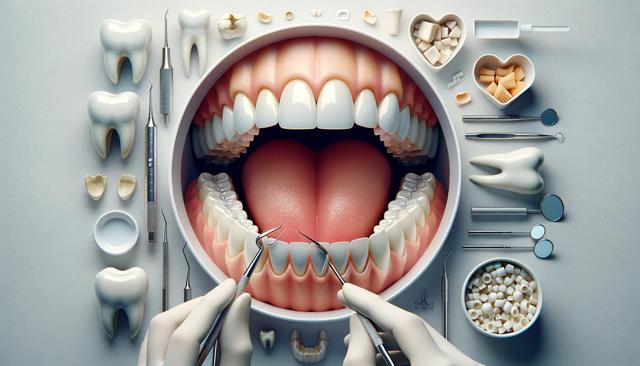Understanding the Role of Diet in AFib Management
Atrial fibrillation (AFib) is a heart rhythm disorder that can lead to serious complications if not managed properly. While medical treatment is essential, dietary choices also play a significant role in controlling symptoms and supporting overall cardiovascular health. The foods you eat can affect inflammation, blood pressure, and even the balance of electrolytes in your body — all of which are critical factors in AFib. A thoughtful approach to nutrition can complement medical strategies and help reduce the frequency of episodes.
One key aspect of managing AFib with diet is minimizing triggers that might provoke irregular heart rhythms. These triggers can vary between individuals but often include high-caffeine beverages, processed snacks high in sodium, and alcohol. Instead, choosing heart-supportive foods can make a noticeable difference. It’s not about following a restrictive diet but rather making consistent, healthful choices that support your heart’s natural rhythm.
Foods That Support Heart Rhythm
Some foods are particularly beneficial for those living with AFib, thanks to their nutrient profiles. A focus on anti-inflammatory and heart-healthy ingredients can help reduce the strain on your heart and keep your rhythm more stable. Here are several food groups to prioritize:
- Leafy greens: Rich in magnesium and potassium, which help regulate heartbeat.
- Fatty fish: Such as salmon or sardines, are high in omega-3 fatty acids that reduce inflammation.
- Whole grains: Provide fiber and help maintain healthy blood pressure and cholesterol.
- Berries: Contain antioxidants that protect heart tissue.
- Nuts and seeds: Offer healthy fats and minerals important for heart health.
Incorporating these into your daily meals can create a solid foundation for managing AFib through diet. It’s also helpful to cook at home more often, allowing you to control sodium levels and avoid hidden additives found in processed foods.
Foods and Habits to Limit or Avoid
Just as some foods support heart health, others may increase the chances of triggering AFib episodes. Recognizing and limiting these foods can be just as important as adding the right ones. Common dietary culprits include:
- Excessive sodium: Can elevate blood pressure and increase the workload on your heart.
- Alcohol: Even moderate drinking can provoke AFib in some individuals.
- Caffeine: Found in coffee, energy drinks, and some teas, it may cause palpitations.
- Processed foods: Often high in trans fats, sugar, and preservatives that may promote inflammation.
A good strategy is to read labels carefully and aim to eat foods in their most natural forms. If you’re dining out or purchasing pre-prepared meals, ask for nutritional information when possible so you can make informed decisions.
Hydration and Electrolyte Balance
Staying well-hydrated is another important piece of the puzzle when managing AFib. Dehydration can lead to an imbalance in electrolytes like potassium, magnesium, and sodium, which in turn affects heart function. People with AFib should aim to drink consistent amounts of water throughout the day, especially in hot weather or when physically active.
In addition to water, you can maintain electrolyte balance through food. Potassium-rich foods such as bananas, sweet potatoes, and spinach are excellent choices. Magnesium, found in almonds, legumes, and whole grains, also plays a critical role in maintaining a steady heartbeat. If you’re concerned about your hydration or electrolyte levels, consult with your healthcare provider before using supplements — it’s usually best to meet these needs through diet.
Creating a Sustainable Eating Plan
One of the most effective ways to manage AFib with food is to create an eating plan that’s realistic and sustainable over the long term. Rather than aiming for perfection, focus on consistency. Meal prepping, keeping healthy snacks on hand, and planning grocery lists can make it easier to stick to your goals. A Mediterranean-style eating pattern is often recommended for those with heart concerns due to its emphasis on whole foods, healthy fats, and moderate portions.
Here are a few practical tips to get started:
- Start your day with a fiber-rich breakfast like oatmeal topped with berries and chia seeds.
- Include a variety of colorful vegetables at every meal.
- Use herbs and spices instead of salt for flavor.
- Snack on unsalted nuts, fruit, or yogurt instead of processed chips or sweets.
- Prepare meals in advance to avoid relying on fast food or takeout.
Tracking your symptoms and food intake can also uncover personal triggers or helpful patterns. Over time, you can adjust your plan based on what works best for you.
Conclusion: Building Heart-Healthy Habits
Managing atrial fibrillation through food is not about strict diets or quick fixes — it’s about making informed, thoughtful choices that support your heart’s rhythm and overall well-being. By focusing on nutrient-rich foods, staying hydrated, and limiting known dietary triggers, individuals with AFib can take meaningful steps toward reducing episodes and enhancing quality of life. Always consult with a healthcare provider or a registered dietitian before making significant dietary changes, especially if you have other health conditions. With time and consistency, a heart-friendly diet can become a valuable part of your AFib management plan.


